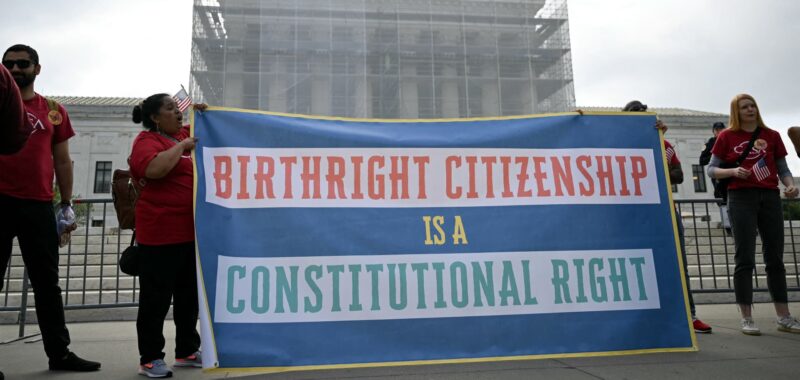The U.S. Supreme Court building in Washington, July 19, 2024.
Kevin Mohatt | Reuters
The executive order signed by President Donald Trump sharply limiting birthright citizenship in the United States “violates four Supreme Court precedents,” Supreme Court Justice Sonia Sotomayor told a top Justice Department lawyer Thursday morning.
Sotomayor’s comment to Solicitor General D. John Sauer came as he argued that individual federal district court judges should not have the power to impose national injunctions blocking such executive actions, as litigation over them plays out.
Both Sotomayor and her fellow liberal on the Supreme Court, Justice Elena Kagan, pressed Sauer on his argument, which both justices suggested would bar courts up to and including the Supreme Court from ruling that the executive order on birthright citizenship is unconstitutional.
“Assume you’re dead wrong” on the legality of Trump’s order, Kagan told Sauer.
“How do we get to that result?” Kagan said. “Does every single person affected by his EO [executive order] have to bring their own suit?”
Sauer suggested there were other means for the Supreme Court to decide the question without that happening, but Kagan said she was not heartened by his replying, telling him she suspected he would argue that whatever means were used were also invalid.
The case comes as Trump has issued executive orders related to a range of issues that have been halted by federal district court judges.
“Big case today in the United States Supreme Court,” Trump wrote in a social media post earlier Thursday.
“Birthright Citizenship was not meant for people taking vacations to become permanent Citizens of the United States of America, and bringing their families with them, all the time laughing at the “SUCKERS” that we are!” he wrote.
People hold a sign as they participate in a protest outside the U.S. Supreme Court over President Donald Trump’s move to end birthright citizenship as the court hears arguments over the order in Washington, May 15, 2025.
Drew Angerer | Afp | Getty Images
Trump, on his first day back in the White House in January, signed an executive order that claimed the 14th Amendment of the Constitution did not, despite longstanding practice, automatically extend American citizenship to anyone born in the United States.
In his Truth Social post on Thursday, Trump argued that the amendment was meant only to grant citizenship to the children of people who were enslaved before the end of the Civil War.
It has “nothing to do with Illegal Immigration for people wanting to SCAM our Country, from all parts of the World, which they have done for many years,” he wrote.
“Please explain this to the Supreme Court of the United States,” the president added.
For Thursday’s arguments, the Supreme Court is not expected to rule on the question of whether Trump’s order is constitutional in limiting the scope of the 14th Amendment as it has long been interpreted.
Instead, the high court will consider issues stemming from three federal district court lawsuits that challenged Trump’s order.
The question at hand is whether district court judges can block a presidential order nationwide, or just in individual states or as it applies to the people suing.
Two of the cases were filed by more than 20 states and two cities, while the third was filed by five pregnant non-citizens and two immigrant advocacy groups.
The judges in all three cases issued orders blocking Trump’s executive order. Three federal circuit courts of appeals largely upheld the effects of those orders.
This is developing news. Check back for updates.

